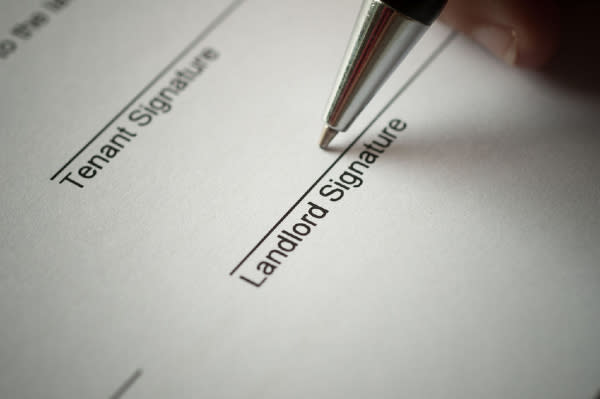What Is The Upcoming Residential Tenancy Act All About?

In countries such as the UK, Australia, New Zealand, and Canada, there is legislation that deals specifically with landlords and tenants, to ensure both parties remain protected.
In Malaysia, however, it's a completely different story as there is currently NO specific legal framework for renters and landlords!
This is set to change in the first quarter of 2022, with the Ministry of Housing and Local Government planning to table the Residential Tenancy Act (RTA) in Parliament.
The Act is geared towards offering protection to both tenants and landlords, while taking into account the interests of every party involved.
Let's take a closer look at what this is all about, and why it's so important (and long overdue) to finally have this in place.
The Current Situation for Renters and Landlords in Malaysia
As it stands, the laws that currently impact the rights and responsibilities of tenants and landlords include:
Contracts Act 1950 – legislation to cover conflicts on the tenancy agreement
Civil Law Act 1956 – legislation to cover payment disputes
Distress Act 1951 – legislation covering matters of eviction
Specific Relief Act 1950 – prohibits landlords from evicting tenants or making the property inaccessible to tenants without a court order
Common Law/Case Law – an overarching framework covering rental disputes
A tenancy agreement can be entered into via two ways: Orally, or in writing (yes, an oral contract is considered legally binding).

Relevant Guide
The rights and obligations of both parties would depend on the terms and conditions that are stated in the contract.
Problems would arise if either the landlord or tenant are not equal in standing, giving one more bargaining power over the other. This has the possibility to cause some serious issues as one party may not be well protected.
While provisions on tenancies and leases can be found in the list of laws above, the existing legislation remains vague.
The lack of specific legislation dealing with landlords and tenants, and the absence of a tribunal to resolve disputes relating to rent control, racist demands, eviction notices, and other matters can place a lot of stress on people.
What The Proposed Residential Tenancy Act Could Cover
It has been hinted that the RTA aims to put a stop to landlords evicting tenants without a solid reason, or raising rental indiscriminately to exorbitant levels, as well as to address the issues of direct and indirect discrimination. Here's what it all means:
1) Indiscriminate Eviction
Even without the RTA, it is still unlawful for a landlord to evict a tenant without a good and valid reason, according to the Specific Relief Act 1950.
Under Section 7(2) of the same Act, a landlord cannot evict a tenant and/or recover possession of the premise unless he/she has a court order. The landlord also cannot change the locks or retake the property by force.
2) Raising Rent
Rental rates in Malaysia are currently based on market forces. Seeing as how we just went through a global pandemic, it makes sense (in the short-term) to enforce certain price controls.
This is to ensure vulnerable people have some kind of protection or assistance on the road to recovery. Shelter is, after all, a basic human right.
However, there are setbacks to government intervention in a free market. One of them may include calls for caps on commercial properties.
What this means is that the government will be forced to place controls on rentals for places like shopping malls, food courts, restaurants, shop lots, and offices.
This will have a cascading effect on the market, that will not only drive local and foreign investors away, but may also see developers cutting back drastically on building those.
3) Direct And Indirect Discrimination
Direct discrimination occurs where someone is treated less favourably than another person because of their race, religion, gender, sexual orientation or other protected grounds.
An example of direct discrimination is when the landlord or property agent refuses to rent out the property to someone based on their race.
This usually happens when the landlord expressly states that he/she doesn’t want (in fact, some are hostile!) a particular race living in the property.
Indirect discrimination is where there is a requirement (a rule or policy) that is the same for everyone, but which has a disproportionate effect on particular groups like women, disabled people, or people of certain races.
Indirect discrimination also happens when a landlord decides he will only rent his property to a family, knowing there is a large number of single workers in a particular area, who might otherwise apply to rent the property.
While it remains to be seen what will go into Malaysia’s RTA, we know that it will be based on the Australian Residential Tenancy Act 1997, which is being used in New South Wales and Victoria.

In Victoria, for example, it is unlawful to discriminate against someone on the basis of certain personal attributes.
This means that landlords and real estate agents cannot refuse you accommodation based on characteristics such as:
Age
Disability (including physical, sensory and intellectual disability)
Employment activity
Expunged homosexual conviction
Gender identity
Industrial activity
Marital status
Parental status or status as a carer
Pregnancy
Race
Religious belief or activity
Sex activity or sexual orientation
Sex or intersex status
Association with someone who has these personal characteristics
So Is Malaysia Pro-Tenant Or Pro-Landlord?
While the rental market in Malaysia is more pro-tenant, what must be asked is how the new Act will be defined and enforced.
How will the RTA define racism? How will it manage disgruntled landlords and bring them peace of mind as well?
We’ve all heard about tenants from hell that leave properties in a state of ruin. and run off without paying their dues. Worse is when they also decide to steal all your stuff, if it's a semi/fully furnished unit!
Hopefully, the RTA will provide some leeway for landlords, while also protecting renters through a more streamlined legal framework.
With or without the RTA, it is a good idea for tenants and landlords to be cordial and communicate clearly with each other.
This will ensure that tenants continue taking care of the property and paying rent on time, as well as landlords being able to tend to major issues quickly, or discuss revising rental rates down the road.
While we wait for more details on the RTA, here are all the things you should look out for before signing your tenancy agreement.





